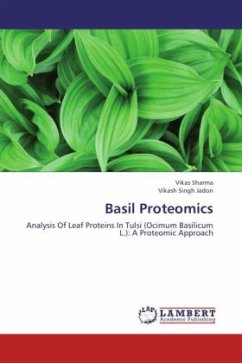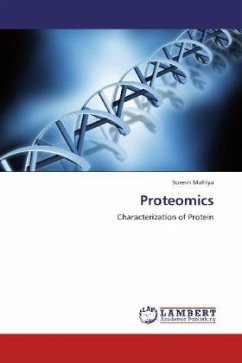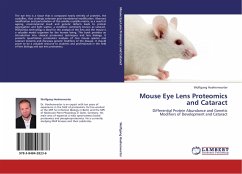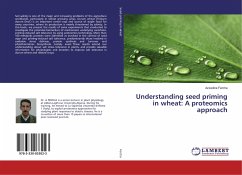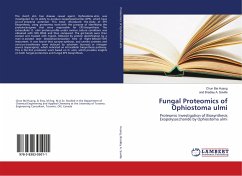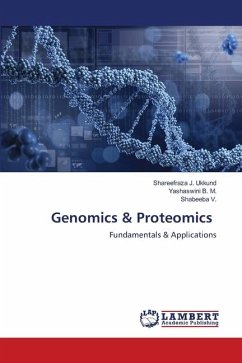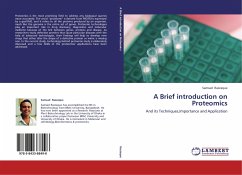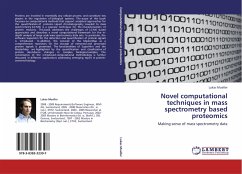As a part of the systematic and proteomic approach based characterization of plant material with the advantage of producing valuable informations of functional genomics for a general crop improvement programme, leaves of holy medicinal-aromatic plant Tulsi (Ocimum basilicum L.) were used as a source of proteins and a model eukaryotic system. In this study, we developed a reliable protocol for PEG mediated enrichment of low abundant cellular proteins to increase their detection through 2 DE-SDS PAGE. I6% PEG was found to be optimum for the precipitation of Ocimum protein. Further, proteome proteins in different fractions were analysed electrophoretically including 2- DE technique. These protocols may also will helpful in further studies in basil proteomics and other plants also.
Bitte wählen Sie Ihr Anliegen aus.
Rechnungen
Retourenschein anfordern
Bestellstatus
Storno

